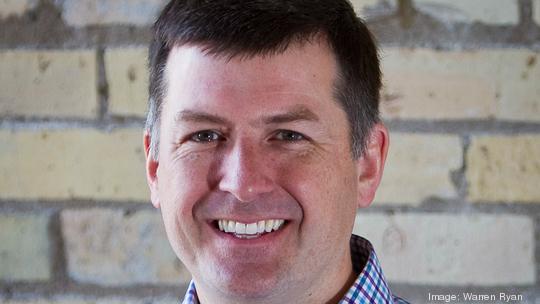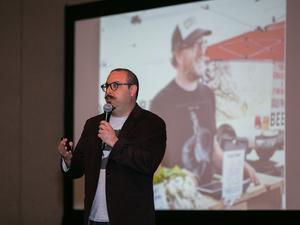
The secret to good health? Get enough sleep, eat well — and maybe vote regularly, according to Carrot Health, a Minneapolis firm that's working to better understand what are often called the social determinants of health and has collected data on millions of Americans.
The firm's approach is attracting attention: Carrot has already landed four of the country's top 10 health plans as its clients, CEO Kurt Waltenbaugh said.
The firm seeks to better understand the social factors that make people unhealthy and the barriers that prevent them from getting well. To do that, it needs a whole lot of data.
Carrot has collected over 80 points of data on every adult in America, ranging from names and addresses to voting habits, and can use that information to make an educated guess at someone's health. How someone votes doesn't have an effect on their health, Waltenbaugh said, but how often they do does. People who vote more often are less likely to be socially isolated and are in better health.
Carrot gets information from data brokers like Acxiom and Experian, as well as from publicly available sources. It also gets more in-depth information from its clients, which include hospital systems and health insurance companies like UCare and Medica. It's created scores for over 25 million Americans covered by its clients.
Collecting that data and keeping it safe are two of Carrot's biggest investments, Waltenbaugh said, though he declined to say how much the company spent on its data.
While only data collected from health care companies is legally covered by the Health Insurance Portability and Accountability Act (or HIPAA, a law that protects privacy in the health care industry), the company treats all its collected data as if it was, meaning even Carrot's employees can't access the consumer data, Waltenbaugh said.
The data is used to help break down the social determinants of health in detail. For example, the Twin Cities as a whole has a life expectancy of over 80 years old according to the Amherst H. Wilder Foundation. However, that broad number can conceal hidden inequities: Those living in western suburbs have a life expectancy of almost 90, while neighborhoods like St. Paul's Frogtown have a life expectancy of less than 70, Waltenbaugh said.
“These are things that should make us angry, and if you don’t use data, you’ll never know they’re there," he said.
Carrot's data can be used for practical purposes. At the beginning of the Covid-19 pandemic in 2020, one customer in Michigan used Carrot to identify people who were suffering from food insecurity and at high risk of contracting Covid. The customer delivered thousands of meals to those people, believing they could keep them from risking the virus at grocery stores while also keeping them out of emergency rooms.
The firm is roughly doubling in size each year, Waltenbaugh said. It has over 50 employees in Northeast Minneapolis, and is aggressively investing in its sales and marketing. It also currently has 10 open jobs on its website, largely in tech roles.
Carrot hasn't taken any venture capital money. That's allowed it to grow at its own pace and to better change and pivot to meet customer demand.
“If you do this tied to customer revenue it focuses on what the market needs and where the market is at today," Waltenbaugh said.







